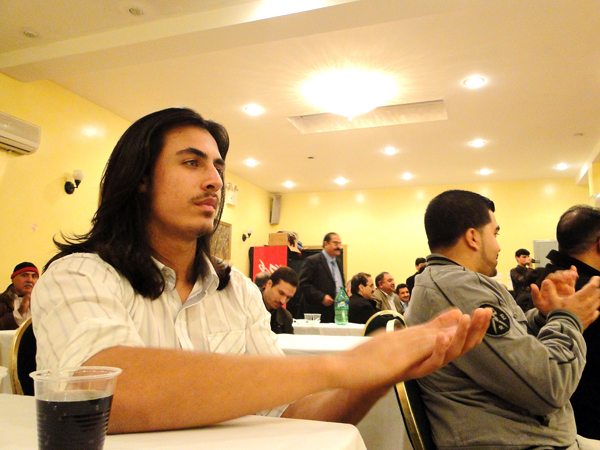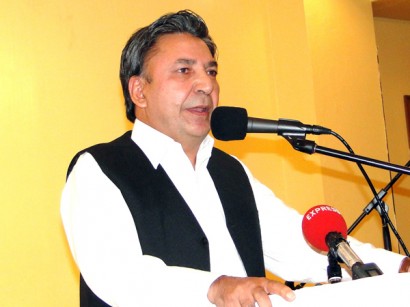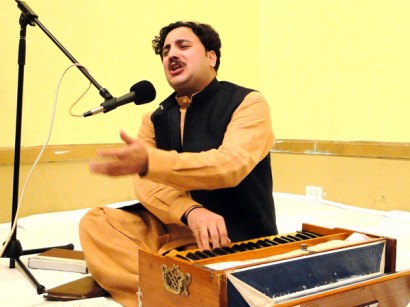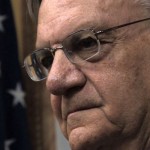
Pashtun immigrants in New York. (Photo: Mohsin Zaheer)
In the midst of ongoing violence in Afghanistan and Pakistan, New York’s ethnic Pashtun immigrant community is between a rock and a hard place.
They say they don’t want to be painted with the same negative brush as the Pashtuns in the Taliban or other militant groups. Many Pashtun Americans say they suffer from discrimination because of their ethnicity. But at the same time they are accused of being too “American” by some in their homeland.
The vast majority of ethnic Pashtuns are found in an area stretching from southeastern Afghanistan to northwestern Pakistan. Some thirty million Pashtuns live on one side or the other of the “Durand Line,” part of the border between Afghanistan and Pakistan.
Most of these Pashtuns are found in the “Khyber Pakhtunkhwa” province of Pakistan, located in the northwest of the country. This is also an area where the Taliban is active and the War on Terror has been waged since 2002.
“We the Pashtuns are on the forefront of this war on terror,” said Haji Adeel, member of the Senate of Pakistan, while talking to FI2W during his recent visit to the United Nations. “The whole world is looking after their interests in our area, the area which is virtually a battleground of the ‘war on terror’ and if I may say that we are fighting ‘World War III’, it may not be wrong,” he continued.
The Taliban movement is primarily made up of members belonging to ethnic Pashtun tribes, along with volunteers from nearby Islamic countries, such as Uzbeks, Tajiks, Punjabis, Arabs, Chechens, and others.
“But the dilemma of the Pashtun American community is that when we go to our motherland, Pakistan, especially to our area Khyber Pakhtonkhwa, people against America think, we are ‘Americans’ and when we come back to our adopted homeland – U.S.A. – members of our community complain that they are treated as suspects upon the ports of entries,” said Taj Akbar, president of the Khyber Society.
The Khyber Society, founded 25 years ago, is a community organization representing Pashtun Americans. In November, it organized “Pashtun Day” on Coney Island Avenue in Brooklyn, New York, an area known as “little Pakistan.” Although there are no statistics available for exactly how many Pashtuns live in the U.S., Mr. Akbar claims there are almost 12,000 Pashtuns in the New York tri-state area.
On “Pashtun Day,” community leaders urged their members to keep practicing Pashtun traditions, and called upon the U.S. government not to treat them differently just because they are Pashtuns. Pakistani Senator Adeel said this is especially important because many Pashtuns have been innocent casualties of the nine year war.
“In our Awami National Party (ANP), one of the most representative of Pakistani Pashtuns, 450 party workers and office bearers sacrificed their lives during the war on terror,” said Senator Adeel. “The Obama administration should change their behavior when it comes to treating Pashtuns and Pakistani Americans whose fellow Pakistanis are paying a heavy price in the war on terror.”
One of the major complaints at the event was how Pashtuns are treated at ports of entry to the U.S., particularly if their last name is “Khan,” a common surname among Pashtuns. “We are the followers of Bacha Khan and his philosophy of non violence,” said Akbar to a crowd. He then quoted a line from the famous Indian movie, My name is Khan: “That’s why I would like to say that ‘I am a Khan, I am not a terrorist.’”
Mr. Akbar, who runs a tax and accounting business on Coney Island Avenue, also urged the Obama administration to go after real terrorists.

Taj Akbar, president of the Khyber Society. (Photo: Mohsin Zaheer)
But the U.S. Customs and Border Protection (CBP), which handles passengers at U.S. Ports of Entry denied treating Pashtun travelers differently.
“CBP does not use racial profiling, said Anthony L. Bucci, a public affairs specialist. “CBP strives to treat all travelers with respect and in a professional manner, while maintaining the focus of our mission to protect all citizens and visitors in the United States.”
But Akbar says he was targeted for additional security measures so many times it couldn’t be random.
“Then I wrote a letter to Homeland Security Department that if my name or part of my name matches with somebody else’s name, it’s not my fault,” Akbar said.
The community leaders want to correct the assumption that all Pashtuns are part of the Taliban. “The Pashtuns who believe in violence could not belong to us,” said Akbar. He urged the Pashtun American community to unite to dispel the wrong impressions about true Pashtuns.
“The best tool is education, we can not move forward if we won’t have higher and higher education,” said Sher Bahadar, vice president of the Khyber Society. “It is a matter of shame for those who called themselves Pashtuns, but they burned girl’s schools in their areas,” he added.
Then there is the flip side of the coin. Dr. Rafiq Jan, founder of the Jan Foundation, a not-for-profit, also has a complaint, but his is against those extremists who think he is too “American” and he should not even be allowed to help the poor in his native town.
Dr. Jan, a medical doctor by profession, claims that he was one of the first Pakistani immigrants to come to the U.S. more than 40 years ago. For 18 years, he traveled back to his native town, Hangu, in Khyber Pakhtunkhwa, and set up an ‘eye camp.’
“During these years I did more than 8,000 cataract surgeries free of cost and saw more than 80,000 patients,” he said.
But last year when Dr. Jan traveled to Hangu, officials escorted him out, saying it was too dangerous.
“I was told by local law enforcement agencies, I could be a target of those extremist who are against ‘Americans.’” Since then, Dr. Jan says he has visited Pakistan, but not Hangu.
“Even this year I took medicines worth thousands of dollars but could not distribute amongst the poor with my own hands, I gave it to somebody else and he gave it to the needy.”

Pashtun musicians performed on Pashtun Day in Brooklyn, NY. (Photo: Mohsin Zaheer)
Pashtun leaders in New York are trying their best not to let their community fragment.
“Unfortunately back home—Pakistan—it is Pashtun fighting against Pashtun and it is Pashtun burning another Pashtun’s house. We need to get united,” said Taj Akbar. “If we won’t,” he added, “generations to come would not forgive us.”
Pashtun Day was followed by a traditional ‘Pashtun folk’ musical evening. Famous Pashtun singer Sarfraz Affreedi sang songs with vibrant, melodious Pashtun tunes, to which Taj Akbar and other members of the community danced.
“We are forward looking, moderate, believers in gender equality, democracy and non-violence, so please, for God’s sake don’t paint us with the same brush you paint those who are narrow minded, extremist, fundamentalist and are at war not against America but against us too,” Taj Akbar concluded.
Mohsin Zaheer is a Feet in Two Worlds political reporting fellow. His work, and the work of other Fi2W fellows, is supported by the New York Community Trust and the John S. and James L. Knight Foundation with additional support from the Mertz Gilmore Foundation.




